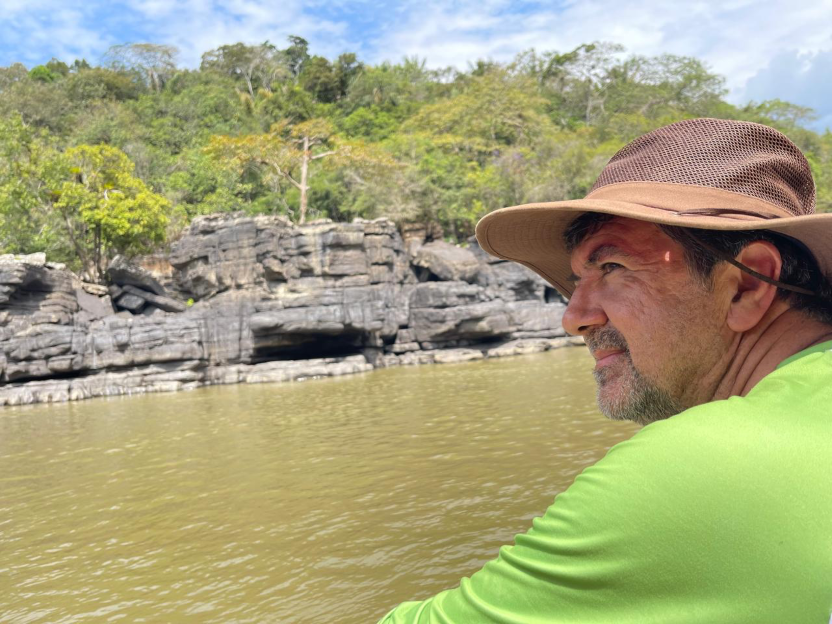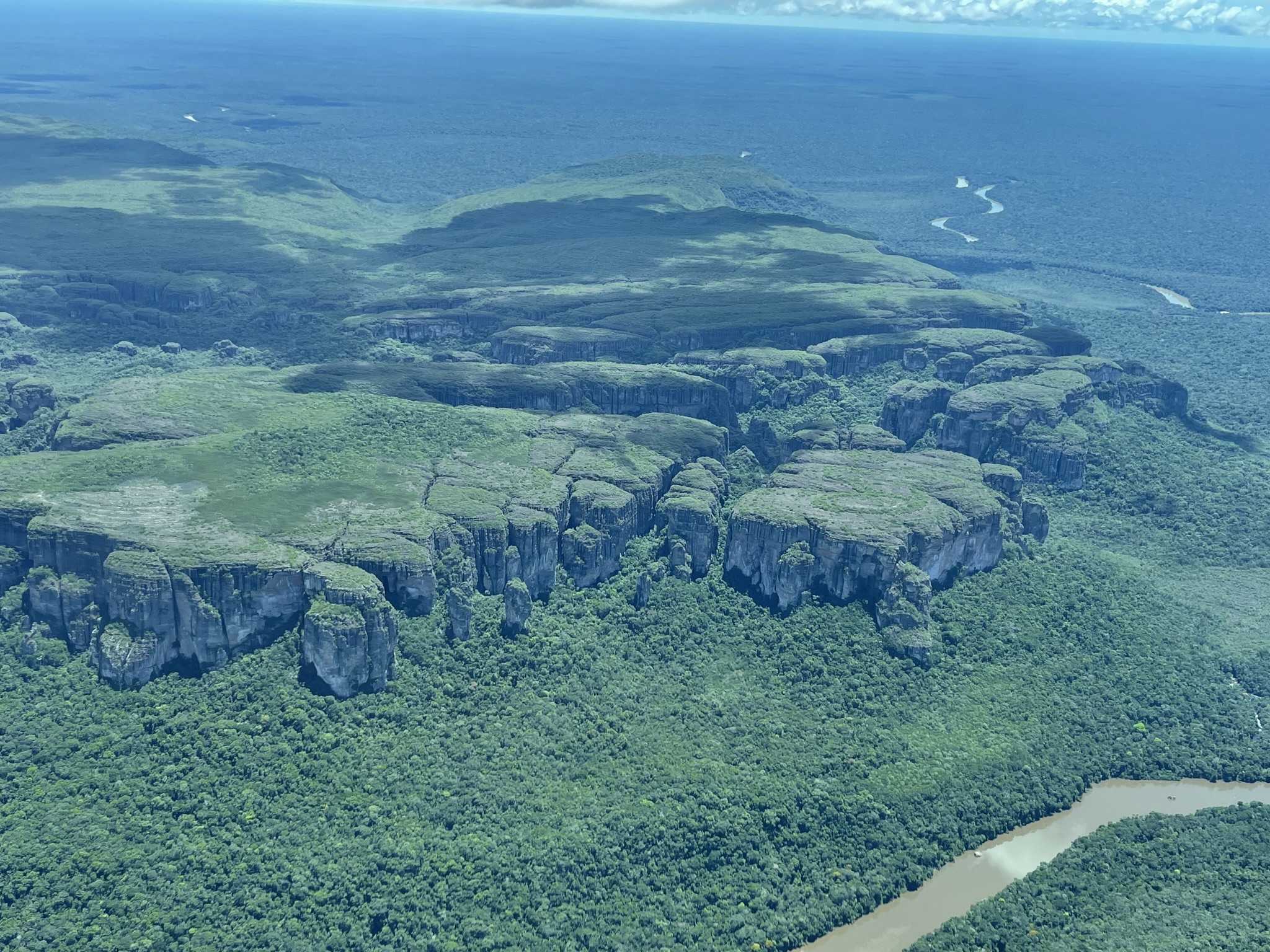Colombian Advocate for the Amazon Selected for Stanford University’s Bright Award
It is challenging to be an environmental activist in most places in the world. In Colombia, it can be life-threatening.
A 2023 report from the nonprofit Global Witness ranked Colombia the world’s most dangerous country for environmental activists and people who defend land rights for indigenous people.
And that’s exactly what Colombia native Rodrigo Botero Garcia has been doing in his country for three decades: fighting to preserve large swaths of land, advocating for local communities and indigenous land rights, and negotiating with entities who seek to exploit the Amazonian region—including armed rebels engaged in illegal mining, drug trafficking, and other deleterious activities that lead to deforestation and threaten indigenous populations.

In recognition of his multi-pronged environmental advocacy in one of the world’s most biodiverse countries, Botero was selected as the 2024 winner of Stanford University’s highest environmental prize, the Bright Award for Environmental Sustainability. The annual award was established by a gift from Stanford Law School (SLS) alumnus and lifelong conservationist Raymond E. Bright, JD ’59, who passed away in 2011. The winner is selected annually from one of 10 rotating regions worldwide based on recommendations from regional consultants and a nominating committee composed of SLS faculty and students, and led by Stanford Law’s Barton H. Thompson, Jr., the Robert E. Paradise Professor in Natural Resources Law, senior fellow at the Woods Institute for the Environment, and a professor in the Doerr School of Sustainability.
Botero will receive the award at an October 8, 2024 ceremony at Stanford Law School.
Register to Attend the Award Ceremony
“Rodrigo Botero shows us that finding common ground, negotiating, and bridge-building skills can move the needle, even in one of the hardest places in the world to advocate for the environment,” said George Triantis, Dean of Stanford Law School and Charles J. Meyers Professor of Law and Business. “We all look forward to welcoming Rodrigo to Stanford, presenting him with the Bright Award, and learning more about his Herculean efforts to preserve the Amazon region in Colombia and beyond.”
Sustainable Development and Equitable Living
Botero directs Colombia’s Conservation and Sustainable Development Foundation (FCDS), which he founded in 2011 to combat deforestation and promote sustainable development and equitable living for local communities and indigenous populations in the Amazon. Monitoring deforestation often means taking to the air, and Botero has logged close to 200 flights, taken more than 45,000 aerial photos, and traveled at least 50,000 kilometers over the jungle.
Earlier in his life, he spent two years living with several indigenous tribes of the rainforest while working for NGOs gathering data and doing research. A shaman eventually told him “it was time to go back to my culture and to work from there to protect these people and these territories.”
And so he did. As head of the Amazon and Orinoco zones of the Colombian National Parks System, Botero led the charge to expand Chiribiquete National Park, now the largest protected area in Colombia at the confluence point of four biogeographical provinces: Amazon, Andes, Orinoco, and Guyana.
“Chiribiquete is the heart of the Colombian Amazon, the main intact forest in the northwest Amazon basin and a natural and cultural heritage of the world,” Botero said. The expansion of the park created a bulwark against land grabs for speculative purposes such as farming, road building, livestock grazing and illegal activities such as coca growing and strip mining. After spearheading the first expansion of 1.4 million hectares, finalized in 2012, he would go on to lead a second expansion, in 2018, of 1.5 million additional hectares, at which point the park was declared a UNESCO World Cultural Heritage site.

But after the first expansion of the park, threats against him came in from all sides: “I received serious threats from people involved in the expansion of the agricultural frontier and people in the business of illegal economic activities,” Botero said.
Despite a peace agreement with the FARC (Fuerzas Armadas Revolucionarias de Colombia) guerrillas in 2016, Colombia is still mired in violence and conflict in many places. The ELN (Ejército de Liberación Nacional, or National Liberation Army), which has been fighting the Colombian government since 1964, still controls–and exploits—vast areas of the rainforest, along with splinter groups of the former FARC, Botero said.
As it happens, the skills and talents needed to protect the land that hosts close to 10 percent of the world’s biodiversity are similar to those needed to broker peace: articulating complex strategies and bringing together stakeholders. In 2022, the Colombian government tapped Botero to collaborate with the negotiation team working to achieve peace with the ELN, a challenging and ongoing process with an uncertain outcome.
“My focus in the peace dialogues is to add to the conversation something that I think has never been done before,” Botero said. “That is to put the environment front and center in the agenda. What we seek to do is to create something like an ‘environmental truth commission’ that recognizes the environment as a victim.”
Beginning in 2010, his six-year role as a technical coordinator for the Andean Amazon Initiative with the United States Department of the Interior provided him with the resources and support of the U.S. government and helped him expand his work to neighboring countries, including Ecuador, Peru, Bolivia and Brazil, where he has led programs on interdisciplinary and sustainable development practices. He has also worked as a conflict resolution advisor in Guatemala’s Biosphere Maya Reserve. He recently led the establishment of a Peruvian outpost of FCDS, his conservation-focused NGO.
“My passion started in Colombia, but of course the land is all connected,” Botero said. “I just have to keep going.”
About Stanford Law School
Stanford Law School is one of the nation’s leading institutions for legal scholarship and education. Its alumni are among the most influential decision makers in law, politics, business, and high technology. Faculty members argue before the Supreme Court, testify before Congress, produce outstanding legal scholarship and empirical analysis, and contribute regularly to the nation’s press as legal and policy experts. Stanford Law School has established a model for legal education that provides rigorous interdisciplinary training, hands-on experience, global perspective, and focus on public service, spearheading a movement for change.
